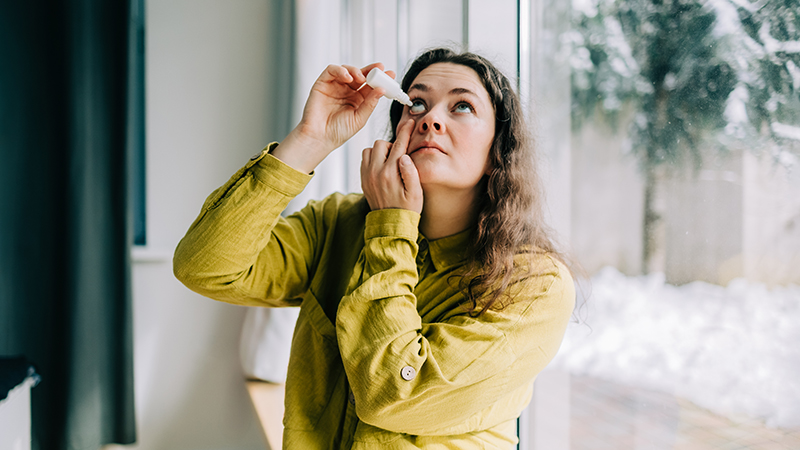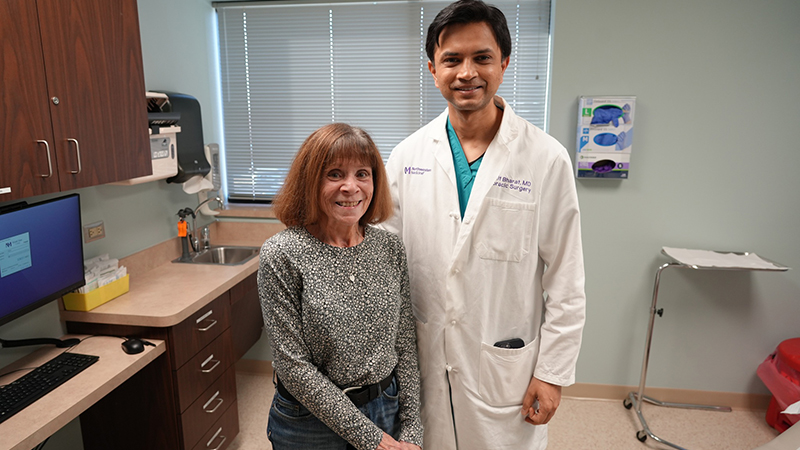How to Treat Vaginal Dryness After Breast Cancer
Non-hormonal and Hormonal Treatment Options
Updated August 2025
A drop in the hormone estrogen is typically the main cause of vaginal dryness. That's why many people develop vaginal dryness during and after menopause — estrogen starts to decrease in the years before menopause and is almost completely depleted when menstruation stops.
Low estrogen can cause vaginal tissue to become thinner, less elastic and less able to produce adequate lubrication. These are symptoms of a condition called genitourinary syndrome of menopause (GSM), or vulvovaginal atrophy. GSM often results in painful intercourse.
Additionally, chemotherapy can cause many people with breast cancer to enter menopause early. This is because it can suppress your body's ability to produce estrogen.
Up to 70% of menopausal women* develop GSM. If left untreated, the symptoms of GSM often continue to worsen during the rest of a woman’s postmenopausal life.
"Many patients consider vaginal dryness, painful intercourse and pelvic pain to be a normal part of aging or cancer survivorship, but it doesn't have to be," says Northwestern Medicine Gynecologist Carolyn N. Mills, MD. "There are a variety of hormonal and non-hormonal treatments for vaginal dryness, and it is important to rule out other causes of pain."
Symptoms of GSM
- Vaginal dryness
- Vaginal irritation
- Vaginal itching
- Having to pee frequently
- Having to pee urgently (urinary urgency), sometimes with leakage (urge incontinence)
- Recurrent urinary tract infections (UTIs)
- Painful intercourse
- Vulvar pain
Non-hormonal Treatments
Over-the-counter vaginal lubricants can sometimes help address pain or dryness with intercourse. However, many lubricants don't restore natural lubrication or vaginal elasticity.
Check with your gynecologist before purchasing something marketed as a vaginal moisturizer to discuss if it will actually help improve your symptoms.
CO2 laser treatment, performed by a certified practitioner, is a non-hormonal option to treat vaginal atrophy. It can restore vaginal and vulvar health by promoting collagen production, increasing lubrication and reducing pain. It may also help you have more pleasurable sexual activity.
Hormonal Treatments
Prescription vaginal estrogen or steroid hormones, like DHEA, are available to help manage vaginal dryness. These treatments:
- Come as tablets, creams, suppositories or vaginal rings
- Are considered safe for almost all postmenopausal women
- Can help reduce symptoms of GSM
Using estrogen directly in the vagina or vulva does not increase estrogen levels in the blood. As a result, it is not associated with the same risks as other forms of hormone therapy.
However, many people diagnosed with breast cancer are advised against using, or prefer not to use, hormone treatments. This is because additional estrogen in their body could increase the risk of breast cancer recurring. Dr. Mills says that some hormonal treatments for vaginal dryness are considered safe for people with breast cancer or in remission.
It is important to discuss your treatment plan with your gynecologist and oncologist.
*Scientists do not always collect information from participants about gender identity. To avoid misrepresenting the results of this research, Northwestern Medicine uses the same terminology as the study authors.






